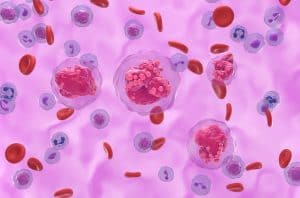
ABPI warns of postcode prescribing
pharmafile | January 21, 2011 | News story | Sales and Marketing | ABPI, Cancer Drugs Fund, NICE, cancer drug prescribing, postcode prescribing
The ABPI has said the government’s forthcoming Cancer Drugs Fund could increase the problems of postcode prescribing.
The UK industry body issued its warning as it responded to the government’s consultation on the Cancer Drugs Fund, which is set to inject an extra £200 million per financial year into the NHS for oncology drugs that have not been recommended by NICE.
The ABPI said in a statement that although it holds “strong support” for the Fund, it noted its potential to “worsen regional variations if the right mechanisms are not put in place to help patients gain equal access to cancer medicines not available on the NHS”.
The Association also called for “close and transparent monitoring” of how the Fund operates, to help identify other factors that could improve outcomes for cancer patients and added that “money alone will not provide a sustainable solution”.
The ABPI said its recommendations were backed by insights into the regional operation of the interim £50 million Cancer Drugs Fund established in October.
While not conclusive, the ABPI said the information collected during the interim Fund’s first three months of operation does show “a lack of regional consistency in access, transparency, timing of decisions, appeal mechanisms, clinical involvement and audit arrangements”.
It added that in some areas the interim Fund had achieved its objective of improved patient access and decision-making consistency.
In light of this, the ABPI’s recommendations include a national framework to identify the correct patients for the Fund and detailed guidance to ensure consistency in its implementation to combat the problems of postcode prescribing.
It also recommends that quarterly reports on how the Fund is operating should be published to assess efficiency in meeting the needs of patients locally.
The industry body suggests the Fund should apply to cancer medicines and specific indications for sub-groups of patients that have either not been reviewed by NICE or have received a negative recommendation by NICE.
In a more radical recommendation, it also wants to include oncology drugs and specific indications which are going through the NICE appraisal system, but where final guidance has not yet been issued.
The pharma industry has been critical of the timeliness of NICE’s appraisal system, which takes an average of nine months to review a drug – during which time it is not generally available on the NHS.
The Cancer Drugs Fund will itself be replaced in 2014 when the government introduces its own value-based pricing system, one aim of which is to gain greater uptake of new cancer drugs.
Ben Adams
Related Content

NICE recommends migraine treatment for NHS use
The National Institute for Health and Care Excellence (NICE) has shared draft guidance recommending AbbVie’s …

GSK’s Jemperli recommended by NICE for endometrial cancer treatment
GSK has announced that the National Institute for Health and Care Excellence (NICE) has recommended …

NICE recommends SC treatment of AbbVie’s Tepkinly for patients with DLBCL
AbbVie has announced that the National Institute for Health and Care Excellence (NICE) has recommended …








